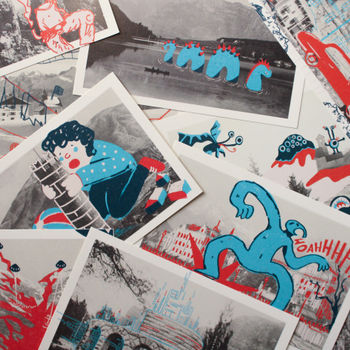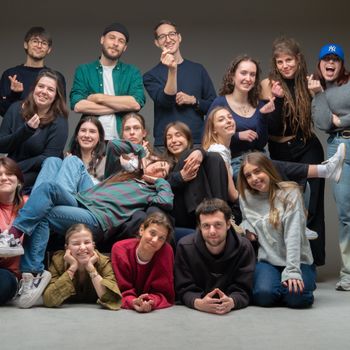“I Am the Product of a Capitalist Economy of Growth”
Hannah Göbbels
Five landscape pictures developed from a description in human language with the AI system “DALL-E 2” and one photograph, printed on fabric, 190 x 270 cm, mounted on steel poles, 200 x 370 cm, 4’25’’ audio
Our capitalist consumer societies live in alienation from the landscape. Resources are exploited, livelihoods are destroyed. According to the sociologist Hartmut Rosa, the main problem is “dynamic stabilization” (the escalatory logic of modernity and its consequences) and capitalist growth society that lead to a lack of what he terms “resonance”. The goal of these capitalist consumer societies is to constantly optimize its resource situation. The landscape is one of these resources. A transformation of the relationship to the world to an intact resonance relationship is impossible in this modern society. According to Rosa, the opposite pole of this intact resonance relationship is alienation.
I Am the Product of a Capitalist Economy of Growth questions and critiques the Capitalocene. The protagonist feels used by a capitalist industry and experiences an identity crisis. In her monologue she reflects on her current situation on an industrial mountain and wishes to be part of a different landscape – a landscape in which she can be herself, identify with her surroundings and experience herself in resonance.






Reading Landscapes: Sites, Representation and Histories of Contested Spaces







